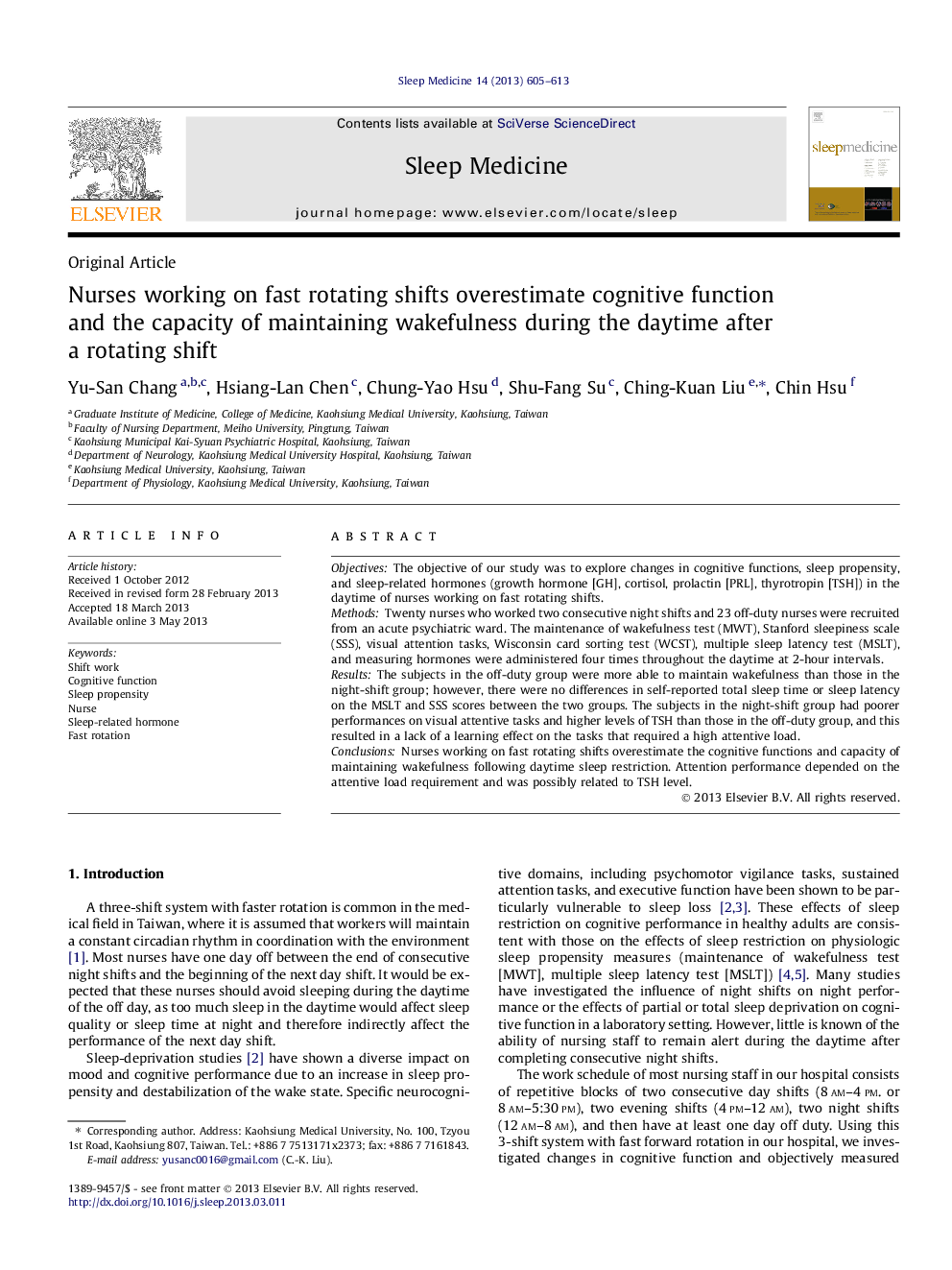| Article ID | Journal | Published Year | Pages | File Type |
|---|---|---|---|---|
| 6061408 | Sleep Medicine | 2013 | 9 Pages |
ObjectivesThe objective of our study was to explore changes in cognitive functions, sleep propensity, and sleep-related hormones (growth hormone [GH], cortisol, prolactin [PRL], thyrotropin [TSH]) in the daytime of nurses working on fast rotating shifts.MethodsTwenty nurses who worked two consecutive night shifts and 23 off-duty nurses were recruited from an acute psychiatric ward. The maintenance of wakefulness test (MWT), Stanford sleepiness scale (SSS), visual attention tasks, Wisconsin card sorting test (WCST), multiple sleep latency test (MSLT), and measuring hormones were administered four times throughout the daytime at 2-hour intervals.ResultsThe subjects in the off-duty group were more able to maintain wakefulness than those in the night-shift group; however, there were no differences in self-reported total sleep time or sleep latency on the MSLT and SSS scores between the two groups. The subjects in the night-shift group had poorer performances on visual attentive tasks and higher levels of TSH than those in the off-duty group, and this resulted in a lack of a learning effect on the tasks that required a high attentive load.ConclusionsNurses working on fast rotating shifts overestimate the cognitive functions and capacity of maintaining wakefulness following daytime sleep restriction. Attention performance depended on the attentive load requirement and was possibly related to TSH level.
